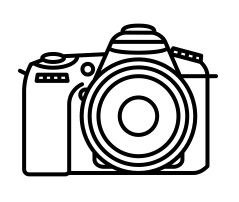“The New Journalism,” edited by Tom Wolfe and E.W. Johnson, emerged as a seminal anthology that carved out a distinct niche for a style of journalism that had been gaining momentum throughout the 1960s and 1970s. This collection, first published in 1973, not only served as a manifesto for this burgeoning movement but also showcased the works of its most brilliant practitioners. The anthology includes pieces from notable writers such as Joan Didion, Hunter S. Thompson, Gay Talese, and Wolfe himself, among others. These journalists pushed the boundaries of traditional reporting, introducing techniques more commonly found in novels and non-fiction narratives, thus creating a hybrid genre that Wolfe championed as “The New Journalism.”
The essence of The New Journalism lies in its radical departure from the detached, objective reporting that had characterized much of journalism up until then. Wolfe and his contemporaries sought to inject a more vivid, immersive form of storytelling into the reportage of real events and personalities. This involved adopting several literary techniques: detailed scene setting, extensive dialogue, third-person point of view, and deep focus on characters, including their inner thoughts and feelings. By employing these methods, the journalists aimed to produce a narrative that was as engaging and character-driven as any work of fiction, yet firmly rooted in factual reporting.
Wolfe opens the anthology with a lengthy introductory essay, which serves both as a manifesto for the New Journalism and as a guide on how to apply its techniques. He argues that the aim was to provide a more nuanced, immersive, and engaging account of real events and people than what traditional journalism could offer. Wolfe contends that the New Journalism arose partly in response to the limitations of both the novel and conventional journalism in capturing the complexities and vibrancies of American life during a period of intense social, political, and cultural upheaval.
The works featured in the anthology cover a wide array of subjects, from political rallies and cultural revolutions to the lives of ordinary Americans caught in extraordinary circumstances. Each piece exemplifies the potential of New Journalism to delve deeper into the human condition and societal trends than traditional reportage might allow. For instance, Gay Talese’s “Frank Sinatra Has a Cold” paints a detailed portrait of the iconic singer without ever securing an interview with him, instead relying on observations of Sinatra’s entourage and the environments he inhabits to reveal his personality and status.
Hunter S. Thompson’s contributions showcase another facet of New Journalism: gonzo journalism, a highly subjective blend of reportage and personal narrative, often blurring the lines between observer and participant. Thompson’s work, characterized by its wild, drug-fueled narratives, demonstrates the extremes to which New Journalism could be taken, challenging the very notion of journalistic objectivity.
Joan Didion’s essays, on the other hand, reflect a more introspective and analytical approach, offering deep dives into the cultural and psychological landscapes of her subjects. Her meticulous observation and lyrical prose exemplify the New Journalism’s capacity for bringing emotional depth and literary quality to journalistic writing.
The anthology, while celebrating the innovations of New Journalism, also sparked debates about the ethics and reliability of blending factual reporting with narrative techniques traditionally associated with fiction. Critics argued that the subjective nature of this style could compromise the accuracy and objectivity expected of journalistic endeavors. However, Wolfe and his fellow new journalists maintained that their approach allowed for a fuller, more vivid representation of reality, arguing that objectivity in journalism was often a guise for superficial reporting.
In summary, “The New Journalism” by Tom Wolfe and E.W. Johnson stands as a landmark publication that not only defined a new era in journalistic writing but also challenged previous conceptions of reporting and storytelling. Through its showcase of groundbreaking works, the anthology demonstrates how adopting literary techniques can enrich the factual narrative, offering readers a more immersive and engaging view of the world. Wolfe and his contemporaries did not merely report on events; they transformed journalism into an art form, expanding the possibilities of how stories about real life could be told.
[Written and illustrated with the help of ChatGPT 4 and Dall-E 2.]

